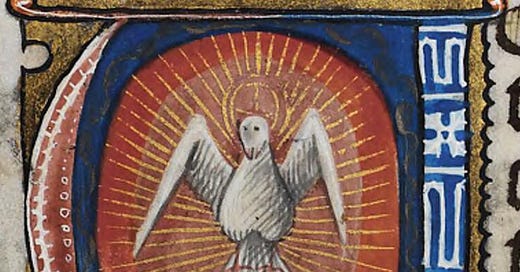The Theology of the Holy Spirit: Robert Jenson
A brief reflection on the work of the late Lutheran theologian, on this anniversary of his passing in 2017
The theme of the Holy Spirit has been an ever more important recourse for ecumenical theology. An important thinker in this regard was Robert Jenson (1930-2017), a leading Lutheran theologian in recent decades. In a time in which the enthusiasm for ecumenism has waned among many, a glance back at Jenson’s thought can offer some much-needed inspiration.
Jenson argued that both Protestant and Catholic ecclesiologies suffer from an overly rational vision of God, which paralyzes their dialogue. Such a tendency goes back to the influence of Hellenic notion of God
Jenson holds that “Catholics and Protestants alike think of time as outside God, a supposition that is plainly false.”1 He contends that an authentic understanding of the action of the Holy Spirit in the Church, in the various aspects of the Church’s life, would lead to a deeper awareness of the Church’s identity in continuity not simply with her historical past, but also with her eschatological future. This perspective would avoid the danger of understanding God’s eternity in a static way, a conception proper to Hellenism, in which God’s eternity would be seen as a passivity
Contrary to this static vision, a new appreciation of the Holy Spirit’s dynamic protagonism within the Trinity would give a new vision of the Church’s being:
Eternity would be apprehended as the dramatic mutuality of Father and Spirit, of God as God’s origin and God as God’s goal, and therefore not as immunity to change but as faithfulness in action. Being would accordingly be apprehended not as persistence in what is but as anticipation of what is not yet. The Church would know herself as the temporal mission not of resistance to time but of faithful change in time, and know her own continuity in that mission not as hanging on to what is already there but rather as receiving what must come.2
Jenson expresses the hope that such a renewed dogmatic perspective can help to provide a necessary context to understanding the Church’s institutional nature. While the full ramifications of this perspective remain to be fleshed out, Jenson’s work is a pressing reminder of the importance of a deep understanding of the Trinity and specifically the Holy Spirit for the fruitfulness of ecumenical reflection.
Text adapted from Church and Communion: An Introduction to Ecumenical Theology (The Catholic University of America Press, 2022)
Robert Jenson, Unbaptized God: The Basic Flaw in Ecumenical Theology (Minneapolis: Fortress Press, 1992), 118
Unbaptized God, 138.





A very clear and reassuring perspective which seems consistent with a fuller meaning of "Being".